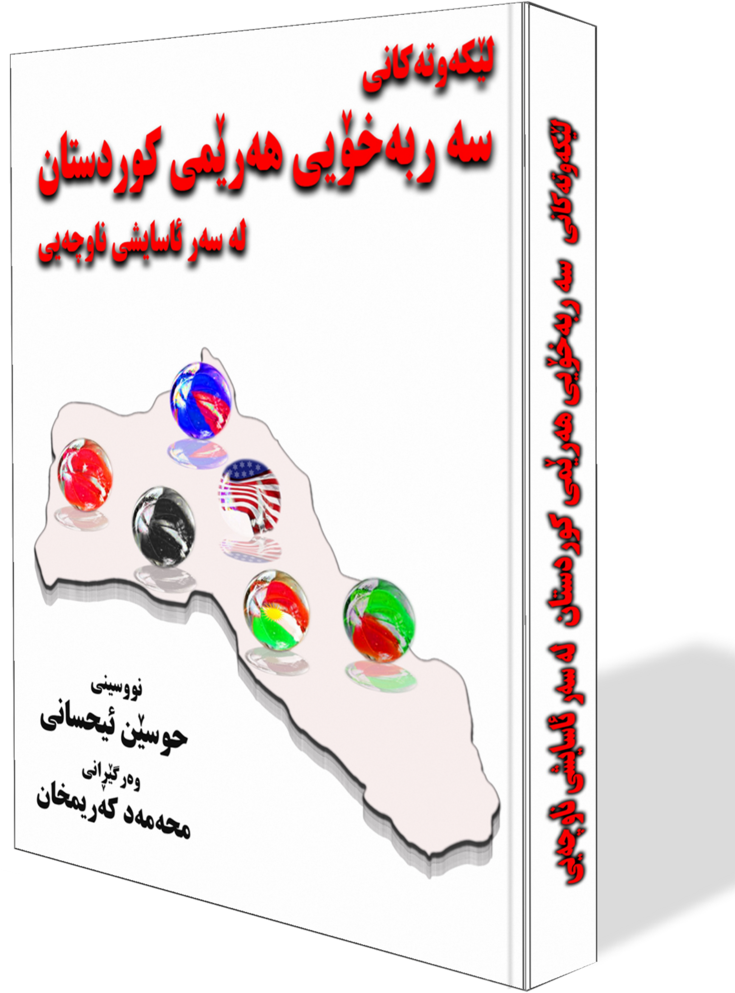Translate Content
Consequences of Kurdistan Region's Independence on Regional Security

In addition to the author's statements, this book also includes the translator's statements and consists of five sections, conclusions, testing of hypotheses, and a list of charts, tables and maps.
The first part of this book contains an introduction and discusses the foundations of research, referring to the research questions and hypotheses, variables, literature and research methods and research organization.
The second part concerns theoretical discussions, consisting of an introduction and two themes and chapters. The first theme is from realism towards the balance of power, the internationalization of religious and ethnic issues, and the independence of regional forces. To solve the problem of regional security, the balance of power is a solid approach to interpreting Third World countries as a universal balance.
The second theme of this section discusses national nationalism, the politicization of the national issue and the transformation of the nation into a political work, a comprehensive balance and a new threat.
The third part of this book deals with the analysis of the Middle East security scope, which includes an introduction and several articles and summaries.
The topics of this section include the characteristics of the Middle East and the nature of regional security, the Security Council and the model of regional security, the analysis of the Middle East Security Council as a regional analysis, critical security reading, and security system analysis In the Middle East, how to effectively integrate the Middle Eastern regional system into the structure of the international system , discusses the structure of the international system and its impact on the Middle East, the unipolar system and the consequences of 9/11 on the Middle East, maritime balance policy, between identity and security and the interpretation of national identity security ethnic classification in the Middle East and a clear framework for ethnic definition The issue of identity in the Middle East, at the national and regional levels, consists of structural interpretation, international interpretation, identity and security, self- and other-security analysis, identity and security.
The fourth part deals with the history of political changes in the Kurdistan Region from 1920 to 2017 and consists of an introduction and several topics and chapters.
Faisal's death and the new season of the separatist movement, the emergence of the Kurdistan leadership, Abdulkarim Qasim's coup on July 14 and the Iraqi revolution, Arab nationalists and the fate of the Kurdish struggle, the rule of the Ba'ath Party and the change of the Kurdistan issue. The March 11 agreement and the official recognition of Kurdistan's independence, the Iraq-Iran war, Iraq and Kuwait War
The US invasion of Iraq, the realization of the dream of Kurdistan's independence, the emergence of ISIS and the shaking of Iraq, the paving of Kurdistan's independence, and the referendum of September 25, 2017.
The fifth part of this book contains an introduction and several chapters on the consequences of the Kurdistan Region's independence on the security situation in the Middle East. Articles on International Variability,Kurdish, Iraqi and geopolitical limitations of Kurdistan's independence, Kurdish national identity and independence, self-reliance and economic independence, integrated, independent and strategic military force, problems of Kurdish local leadership, personality and desire of Kurdistan leadership , Kurdish success in the field of diplomacy and foreign policy, State variables in Iraq, analysis of the level of internal assembly, federalist structure of Iraq, supra-state variables, internal security observations of neighboring countries on independence, regional competition among neighboring states, the position of international forces in Kurdistan's independence, international legitimacy of the right to self-determination in relation to the article on border protection, The processes and path to independence with the tensions, consequences and influence of the security context in the Middle East, the issue of migration, the perpetuation of violence in the Middle East, the path to independence through peaceful mechanisms, consequences and so on The reaction of Arab states, Islamist opposition, Arab non-state actors, geopolitical influence , psychological impact on international actors and the rise and establishment of cultural models of participation in neighboring countries.
Download (PDF) Read online


